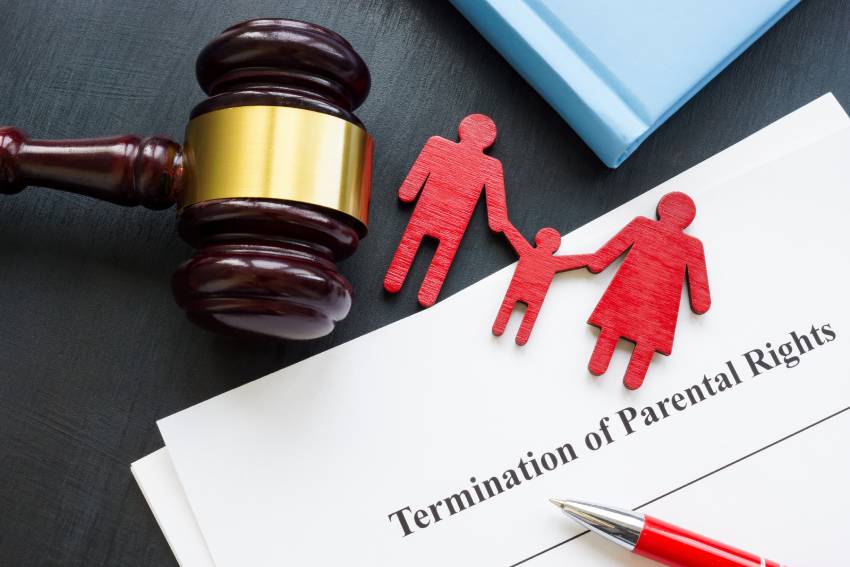Let’s be honest: termination of parental rights in California is about as serious as family law gets. We’re talking about permanently cutting the legal ties between a parent and child—forever.
At Westover Law, our family law attorneys in California have seen how these cases tear families apart and sometimes put them back together in new ways. Whether you’re trying to protect a child or fighting to keep your parental rights, you need to understand what you’re up against.
What It Means to Terminate Parental Rights in California
When a court terminates parental rights, that parent becomes a legal stranger to their child. No custody, no visitation, no say in medical decisions—nothing. The child loses inheritance rights too. It’s like hitting the reset button on the entire relationship, except there’s no going back.
This isn’t some temporary custody arrangement. Once it’s done, it’s done. That’s exactly why California courts set the bar so high—they need “clear and convincing evidence” that termination actually serves the child’s best interests.
Most cases happen for two reasons: someone wants to adopt the child (and needs the biological parent out of the picture first), or the state decides a parent is unfit. In adoption cases, termination clears the way for new parents. In child welfare cases, it might lead to adoption by others or long-term foster care.
How Do You Terminate Parental Rights Through the California Courts
The process depends on who’s asking and why. Adoption cases usually start with prospective parents or agencies filing paperwork. Sometimes the biological parent agrees—that makes things simpler. Other times they fight it, which means court.
Child Protective Services cases are different. The state removes a child, gives the parent services and time to fix whatever went wrong, then waits. If the parent doesn’t make enough progress in 12 to 18 months, the state might petition for termination.
Private petitions are rare but happen when relatives or guardians think termination is necessary. These require serious evidence that the parent is unfit.
No matter who files, the process involves proper notice, the right to an attorney (court-appointed if you can’t afford one), and hearings where everyone presents their case.
When Voluntary or Involuntary Termination of Parental Rights May Apply
Voluntary termination happens when a parent willingly gives up their rights, usually for adoption. Even then, the court has to approve it. Courts often require counseling or waiting periods because they want to be sure the parent understands what they’re giving up.
Involuntary termination is when the parent fights it or when the state forces the issue. These cases are messier and take longer. The person asking for termination has to prove specific legal grounds exist with that “clear and convincing evidence” standard—which is harder to meet than typical civil cases.
Most involuntary cases involve parents struggling with substance abuse, mental health issues, domestic violence, or other problems that make safe parenting impossible.
Grounds for Termination of Parental Rights and What the Court Considers
California law spells out specific grounds: abandonment, neglect, abuse, failure to support the child, mental illness or substance abuse that prevents safe parenting, and conviction of serious crimes.
Abandonment means failing to maintain contact or provide support for extended periods. Neglect is failing to provide basic needs like food, shelter, or medical care—though being poor isn’t the same as being neglectful. Abuse of any kind often leads to termination proceedings.
Failure to financially support a child can contribute to termination, especially combined with other factors. But courts don’t terminate rights just because someone’s broke—the parent has to have the ability to support but choose not to.
Mental illness or substance abuse matters when these conditions prevent safe parenting. Courts don’t automatically terminate rights because someone has these issues—they look at whether the parent is getting treatment, making progress, and can parent safely.
The court also considers the child’s needs, their current living situation’s stability, and their relationship with the parent. A strong parent-child bond doesn’t automatically prevent termination if other factors show the parent can’t provide safe care.
Facing termination proceedings without experienced legal help is like showing up to surgery with a butter knife. At Westover Law, we understand these cases determine whether families stay together or get permanently separated.
If you’re dealing with termination of parental rights in California, don’t go it alone. Contact us at 951-894-8440 to learn how we can help protect your family.



